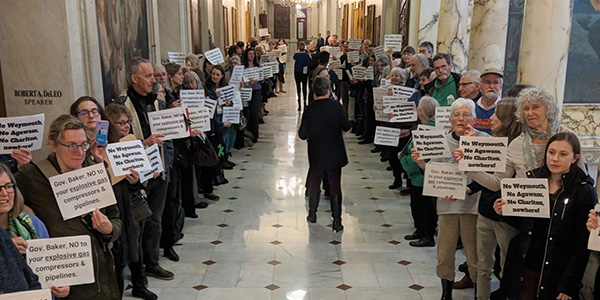Public outreach on when FERC holds proceedings and how communities can intervene in those proceedings are important pieces of a larger need for energy infrastructure planning reform, FERC Commissioner Allison Clements said last week.
New England is experiencing an increase in the electrification of sectors such as heating and transportation to accommodate clean energy sources, Clements said at Raab Associates’ 169th New England Electricity Restructuring Roundtable. But FERC can be proactive in helping communities impacted by the construction of new energy transmission infrastructure understand what it means to intervene in a FERC proceeding and how to do so.
“We haven’t made it clear enough for the public to understand,” Clements said.
Increasing public outreach does not guarantee that FERC will reach a decision the community is happy with, but it will “make our decisions better informed,” she added.
The agency is required to review natural gas infrastructure and electricity transmission line proposals to ensure energy reliability, Clements said. FERC must be “cognizant of extreme weather events and cold winter storms,” and ensure that the Northeast has the energy resources to meet high spikes in demand during potentially life-threatening situations.
FERC Chairman Richard Glick earlier this year created a new senior environmental justice role at the agency to emphasize equity issues in its decisions.
Environmental justice concerns have been raised in several electricity and natural gas transmission projects under FERC’s purview, including a new natural gas compressor station in the South Shore community of Weymouth, Mass.
FERC recently called for a briefing on its decision last year to allow Enbridge to place the Weymouth project into service.
Natural gas makes up about half of New England’s energy fleet, and compressor stations help natural gas move the long distances from its source to the energy demand. The Weymouth station is situated next to two state-designated environmental justice communities.
Opposition to the project arose from residents who are concerned about the pipeline emitting methane and releasing gas in a place where people statistically have higher rates of cancer, pediatric asthma, and cardiovascular and respiratory diseases, according to the Greater Boston Physicians for Social Responsibility.
Anti-natural gas activists are also skeptical about future natural gas demand in Massachusetts, as state policies push the electric transition forward.
There are now more than 60 intervenors on the Weymouth station proceeding, including South Shore residents. FERC’s briefing encourages public input on how any changes in the compressor’s projected emissions could affect nearby environmental justice communities. Initial responses to FERC’s request are due this week.
Clements said she could not comment on an ongoing proceeding and noted that FERC does not take a stance on state and local policies that propose banning gas for new heating or construction infrastructure. The agency also must legally review natural gas infrastructure proposals under the Natural Gas Act of 1938.
But the evidence intervenors bring to a FERC proceeding on projects like the Weymouth Compressor can help the commission “take into account all factors,” Clements said, including demand, environmental justice and energy reliability.
“I hope we do smart-from-the-start planning,” she said.




